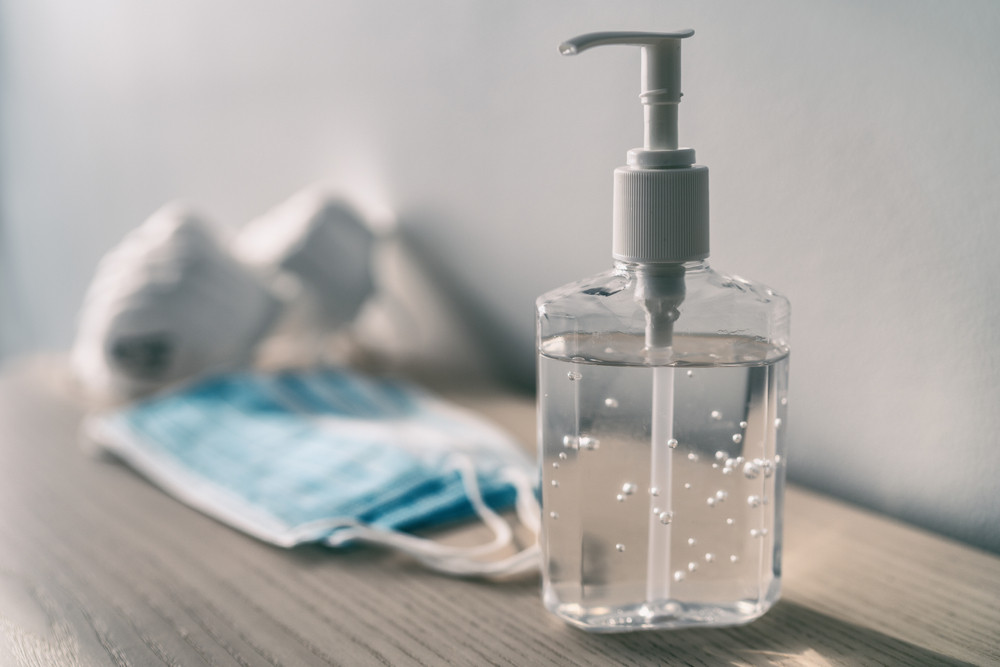Nothing can beat healthy old-fashioned hand washing habits when it comes to stop the spread of the infection of diseases like COVID-19. Recommendations are mainly for using water and soap to wash hands. In case of failing so, hand sanitizers are the best option. As the demand for these sanitizers is rising, it has led to empty shelves in supermarkets and shops. Most retailers cannot keep up with the increasing demand for the rapid spread of coronavirus. So, people have to return bare hands from the shops. Increasing fear, anxiety among the general public regarding sanitizers has made the situation more critical. But the good news is that you can prepare a hand sanitizer at your home. Scroll down the upcoming passages to know them.
Learn how to prepare hand sanitizer at home
There are some ways to make homemade sanitizer. Know how to make homemade sanitizer in the continuing segment.
Hand sanitizer making
Ingredients
1 cup of 99% isopropyl alcohol
1 tablespoon of 3% hydrogen peroxide
1 teaspoon of 98% glycerin
¼ cup (or 65 milliliters) of sterile distilled or boiled cold water
Recipe
First, pour the alcohol into a medium-size container with a pouring spout. The percentage of the level of isopropyl alcohol means alcohol concentration. If you get 99.8% then you are dealing with pure alcohol, whereas 70% refers to only a little more alcohol. Add hydrogen peroxide and glycerin. Stir the combination. Use a clean spoon, shake it well. Then measure ¼ of a cup of the boiled water and add it to the mixture. After sanitizing your spray bottles, pour your sanitizer. Spray some remaining alcohol into the bottles and let it sit untill the alcohol evaporates. After pouring the sanitizer, take the same time to label the bottles so it is completely germ-free.
Gel hand sanitizer
Ingredients
½ cup of aloevera gel (natural or store-bought)
1 cup of 91% isopropyl alcohol
15 drops of tea tree oil (or another antibacterial essential oil)
Recipe
First, pour the alcohol into a medium-size container with a pouring spout. Keep in mind that using isopropyl alcohol diluted above 91% results in a weaker hand sanitizer. As alcohol is sensitive on your skin, you can use aloevera gel to counteract the effect and keep your skin soft and smooth. Without any worry, you can use the aloevera. Aloevera will make the hand sanitizer stickier as it absorbs in your hand for a long time. Tea tree oil, a natural anti-bacterial makes sense to use it. Also use another type of essential oil like lemongrass, lavender or eucalyptus. For full mixing of the blend, stirring is not enough. Add whisk and beat hand sanitizer into a soft gel. After the sanitization with the remaining alcohol and then pour your sanitizer. Then after some time, label your bottles.
After knowing the recipe, many questions may arise in your mind-are they safe? To know more read the next passage.
Is it safe?
These recipes of the above-mentioned should be used by experts and professionals with expertise and resources. Homemade sanitizers are for extreme situations when you cannot wash your hands for the predictable future. So always maintain hygiene for making this sanitizer. Improper proportions or ingredients lead to serious conditions include
Skin irritation, burns or injury
Sanitizer does not eliminate the risk of exposure to microbes
Exposure to hazardous chemicals
Children should not use homemade hand sanitizer. Children are more susceptible to greater injury.
To make the hand sanitizer more effectively, there are guidelines to use hand sanitizer.
How to use hand sanitizer?
Carry on reading the following tips to use hand sanitizer conveniently
Spray or apply the homemade sanitizer to the palm of one hand.
Rub your hands together and cover the entire surface of your hand with fingers.
Continue rub for at least 20 to 30 seconds and then rinse your hands with water. This sanitizer needs this time to kill the germs.
Following these tips help to provide positive results to prevent lethal disease like COVID-19.
To sum up, homemade sanitizers can be an effective way of getting rid of germs if made with proper guidelines. These sanitizers will relieve people during the shortage of hand washes. These will keep your hands free from disease-causing viruses and other germs.





